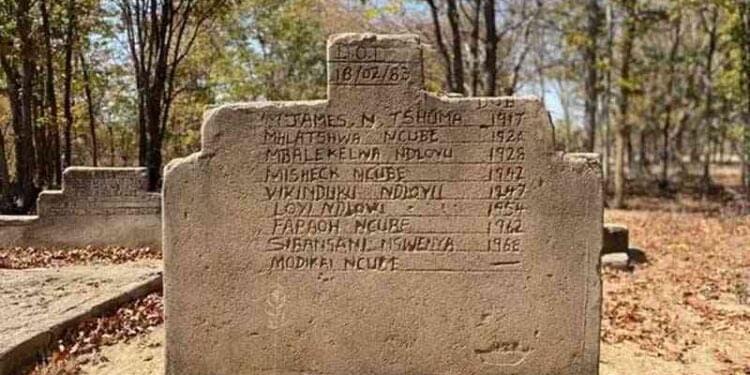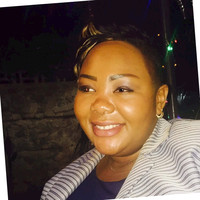It is now close to four decades since the end of Gukurahundi massacres in Matabeleland and Midlands, but survivors and their relatives are still to find closure as the government continues to dither on processes to atone for the atrocities.
According to the Catholic Commission for Justice and Peace (CCJP) report, an estimated 20 000 people were killed by the Fifth Brigade soldiers during Gukurahundi.
And in the past 37 years, survivors and their relatives have been crying out for justice.
Most of them are now worried that the government continues to be evasive in its approach to the k!llings.
In 2020, President Emmerson Mnangagwa tasked traditional leaders in the region with handling hearings on the genocide amid concerns that the process was not inclusive enough.
For Gukurahundi survivor Ben Moyo, the 37 years without the matter being addressed has been like living in hell.
“I was in teaching practice in Tsholotsho,” Moyo said.
“I was teaching at Zibungululu Primary School as a student teacher.
“Three of us student teachers had not been paid our allowances for some time. One of us was an ex-Zipra cadre.
“So the headmaster decided we needed to go to town to resolve the issue.
“We left at 5am and were later told that at 7am soldiers came to the school looking for us, perhaps because there was an ex-Zipra cadre among us.”
He said after failing to locate them, the soldiers ordered their colleagues and villagers to dig a pit and the seven teachers were burIed alive.
The villagers were ordered to sing and chant Zanu slogans as the sordid episode unfolded.
Moyo says it is wrong for Zanu PF members to be at the forefront of the process to address issues related to Gukurahundi.
“How can I expect the perpetrator to address that?
“When the holocaust that took place in Germany ended the international community set up the Nuremberg trials and the perpetrators were tried and convicted,” he said.
“Unfortunately for us the international community has kept quiet and not acknowledged or classified Gukurahundi as genocide.
“So it will take time while both the survivors and perpetrators are dy!ng and some have d!ed.”
Moyo made the remarks after the Gukurahundi Genocide Survivors for Justice (GGS4J) raised concerns that the government wanted to initiate the Gukurahundi consultations without the involvement of victims and survivors.
He said what was needed was a national truth and justice authority to deal with Gukurahundi.
“The perpetrators must be brought to trial,” Moyo said.
“They must be identified. We need a public apology from the government; they must come out clean on that issue and explain.
“We need the history curriculum to acknowledge that the government was responsible for the murder of the civilians.”
Meanwhile, the GGS4J, a civil organisation pushing for the address of the emotive issue, challenged the government to stop imposing strategies to tackle the genocide.
GGS4J chairperson Nomagugu Khumalo described Gukurahundi as Zimbabwe’s biggest socio-political injustice in history.
“There is dire need for the political elite to allow affected masses to map their own way to find closure from the devastating effects of the horrendous Gukurahundi,” Khumalo said.
“The imposed prescription being forced on the people of Matabeleland and Midlands would not be effective in finding justice and peace,” Khumalo said.
She expressed concern over the government-initiated hearings covering Matabeleland region only.
“Since this is a national exercise being implemented by national leaders, it would be a good move if the whole process was kick-started in Harare where the offices of the National Peace and Reconciliation Commission are housed,” Khumalo said.
“There is a need for people in Harare to be heavily invested in this process.
“They should endorse the whole exercise in their own backyard.”
She said the government initiatives sought to exonerate the perpetrators.
“The mono caput management of this whole exercise would bear the most undesirable outcome,” Khumalo said.
“It would be advisable that the government of Zimbabwe apply the dictates of transitional justice, which involves the implementation of mechanisms that hold cultural and contextual legitimacy.”
She said the global community needed to hear the victims’ testimonies.
“Even those who are no longer with us today should never be spared,” Khumalo added.
“Their names must be interred in history.
“Besides our locally known perpetrators – d3ad or alive, there is a long list of instigators at individual and government levels.”
She said all those involved should be identified by name.
“There’s no talking about Gukurahundi without mentioning former president Robert Mugabe (then Prime Minister), Mnangagwa (State Security minister), Sydney Sekeramayi (Defence minister and Perence Shiri (Fifth Brigade commander).
“Even Major General Colin Shortis, who was commander of the British Military Advisory Training Team, which oversaw the training of the 5th Brigade at Inkomo Barracks and their pass-out parade in Nyanga in 1982 should not be spared,” she said.
“King Charles who felt Gukurahundi was exaggerated when he visited Zimbabwe in 1984 becomes another perpetrator.
“The Royal College of Defence Studies in London stands accused as another perpetrator who invited Perence Shiri in 1986 to study there.
“The University of Edinburgh for conferring Mugabe with an honorary degree at the height of Gukurahundi stands accused of perpetrating the genocide for that.
“Lord Carrington (British secretary of state for foreign affairs 1979-1982) stands accused of being a perpetrator as he lobbied for the honour of Mugabe.
“Margaret Thatcher, the prime minister of Britain who continued to give the Fifth Brigade military aid during the atrocities, is another perpetrator we shall never forget.”
Khumalo said Queen Elizabeth was also a perpetrator for conferring Mugabe with the Honourary Knighthood (the Grand Cross in the Order of Bath).
She added that another perpetrator was North Korea for training the Fifth Brigade together with the British government.
SOURCE : SOUYHERN EYE









